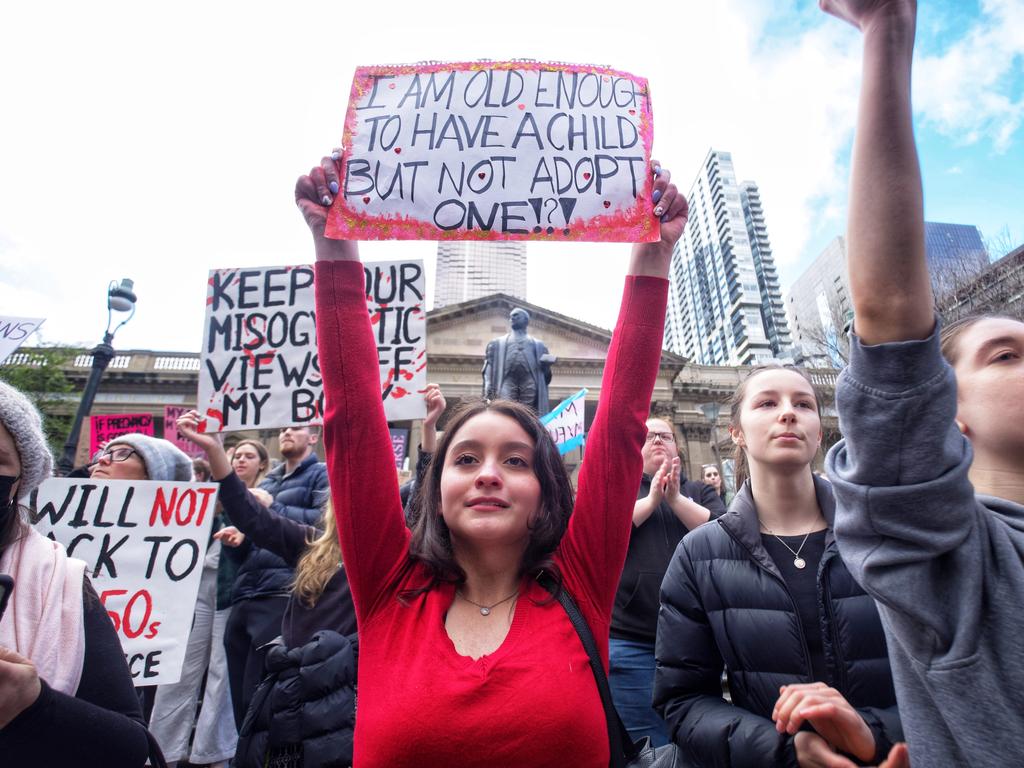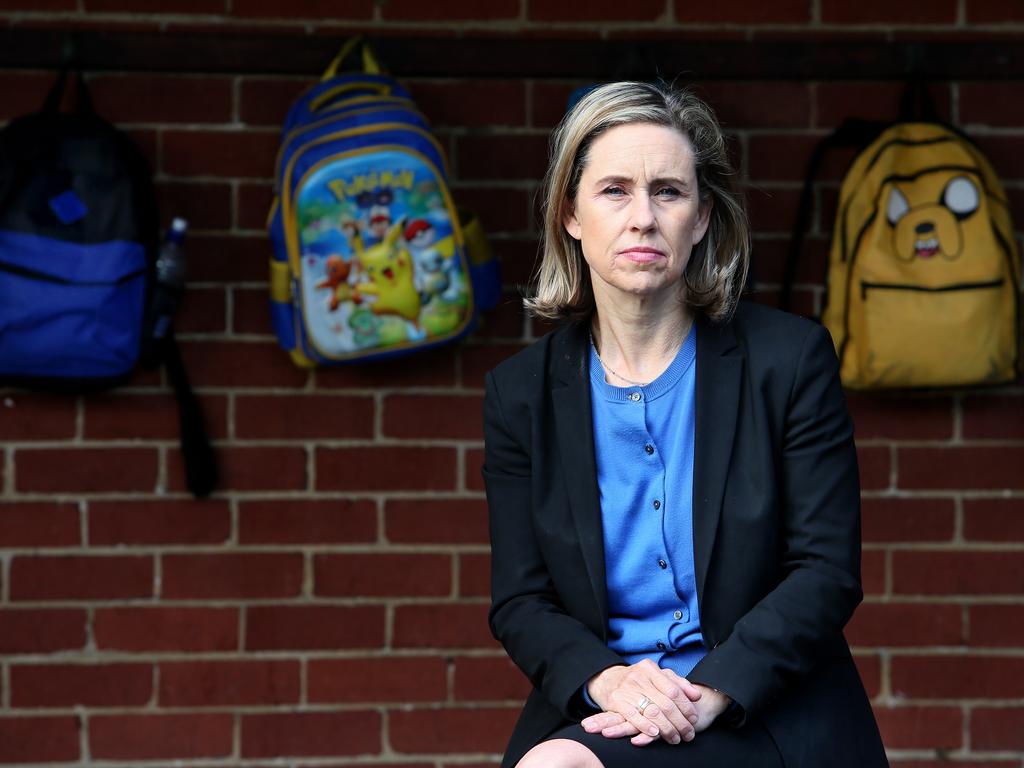Tom Minear: Aussie women fear for US women as abortion laws change
The US Supreme Court’s jaw-dropping decision to overturn Roe v Wade has exposed a huge divide in Australia, writes Tom Minear.
World
Don't miss out on the headlines from World. Followed categories will be added to My News.
An eyewear store in Melbourne’s CBD was just about the last place I expected to find myself discussing America’s abortion laws.
It was a fortnight before I relocated to New York in August when I dropped in to use up my health insurance on a pair of glasses. Having mentioned my move to the shop assistants, they immediately brought up the US Supreme Court’s decision to overturn Roe v Wade, which ended the constitutional right to abortion that had stood for almost half a century.
The pair, a man and a woman in their 20s, were not quite clear on the specifics. Their understanding was that the court’s ruling amounted to a federal ban on abortion, rather than the reality that each US state would now regain the power to set its own laws.

But they were extraordinarily passionate about the issue, in a way that strangers rarely became when I mentioned my former occupation as an Australian political reporter.
They worried about what it would mean for American women, and they could not believe the US would take what they saw as such a backward step on a question they felt had been resolved in Australia.
Except it had not. It was only last Sunday that the Western Australian government announced it would become the last state to fully decriminalise abortion and reform its decades-old laws.
Under existing rules, which are now the subject of consultation, women must seek a GP referral to obtain an abortion prior to 20 weeks’ gestation along with mandatory counselling. After 20 weeks, an abortion is only possible if approved by doctors from a ministerial panel.
WA’s Women’s Interests Minister Simone McGurk said changes were necessary to ensure the laws were “fit for purpose in the 21st century”.

“The overturning of Roe v Wade in the US has drawn a lot of awareness around the need to not only consider our laws but protect our laws and ensure they’re fit for purpose,” she said.
It is strange, to say the least, that it took a court case on the other side of the world for a Labor government which had been in office for more than five years to realise its abortion laws might be outdated.
But what does it say about Australia when the strict status quo in WA had barely made a blip on the national radar, and yet when Roe v Wade was overturned, thousands took to the streets and even the Prime Minister weighed in to condemn the “very unfortunate decision”?
“This decision has caused enormous distress,” Anthony Albanese said in June, “and it is a setback for women and their right to control their own bodies and their lives in the United States.”
“It is a good thing that in Australia, this is not a matter for partisan political debate.”
Perhaps that is the answer. While state governments have long held the right to legislate on abortion, it is difficult to imagine a mainstream political party pushing to roll back rights. The other side of that coin is that there has not been strong momentum for further liberalisation, even in places like WA and SA, which only decriminalised abortion last year.
In the US, Republicans lobbied for years for Roe v Wade to be overturned, only to be caught off-guard when it was. Many struggled to defend their views, while some proposed federal bans that ignored the supposed importance of states’ rights. For the Democrats, protecting abortion laws suddenly became a crucial vote-winner in this month’s midterm elections.

Like Albanese, the salespeople in the glasses shop had grown accustomed to the views of abortion opponents being roundly rejected.
That was the case in recent days with Victorian Liberal candidate Timothy Dragan, who was caught saying he would vote to ban abortion – among other controversial views – and then apologised for his “inappropriate” language as he was slapped down by his leader Matt Guy.
Fair enough. Most of us now consider abortion to be a matter of healthcare, not politics.
But the reverse cultural cringe in Australia over the end of Roe v Wade also suggested something else: a growing unease with religiously motivated views in the public square.
This was evident in the prime ministership of Scott Morrison, who rarely spoke of his faith and yet was still ridiculed by some of his political opponents.
A US politician with Morrison’s Pentecostal beliefs be far more likely to legislate along those lines. We are lucky that our separation of church and state is not so blurred.
That said, we should be careful that protecting it does not fuel intolerance. The abortion debate might now be over in Australia, but we will have problems of our own if we cannot respect the beliefs of those who have lost the argument.
More Coverage
Originally published as Tom Minear: Aussie women fear for US women as abortion laws change









